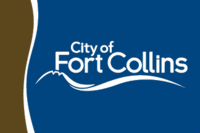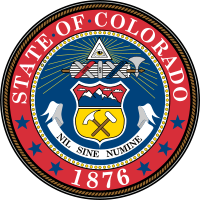
Fast, affordable Internet access for all.

When Fort Collins voters chose to amend their charter last year, they were choosing a path to simplify their ability to improve local connectivity. When Comcast tried to derail the measure to protect their monopoly, community members established a vibrant grassroots effort to overcome the influx of cash and disinformation. Now, Fort Collins is moving ahead after establishing that they intend to issue revenue bonds to develop a municipal fiber optic network.
Big Spending Didn’t Stop The Need
After all the spending was totaled last December, Comcast and CenturyLink under the mask of Priorities First Fort Collins, spent $900,999 to try to defeat measure 2B. The proposal passed anyway and allowed the city to amend its charter. That change allows Fort Collins to issue bonds for telecommunications infrastructure and to take other steps necessary to offer Internet service without taking the issue to the voters a separate time.
Thanks to the efforts of Colin Garfield and Glen Akins and their citizen-led effort to educate and correct Comcast’s disinformation, voters in Fort Collins passed measure 2B. The city opted out of the state’s restrictive SB 152 back in 2015 and voices in the community have advocated for exploration of a publicly owned option for several years. Seems people and businesses in Fort Collins were not able to get the connectivity they needed and incumbents weren’t interested in providing better services.
When the FCC decided late in 2017 to abandon network neutrality policy, Fort Collins City Council decided the time was right to move forward. In January, they voted to establish a municipal telecommunications utility. Their first step was in approving $1.8 million for startup costs, including hiring personnel, equipment, and consulting; the measure passed unanimously. The city council approved the loan from the city’s general fund to the city’s electric utility, which will establish the broadband utility to operate the network. After reviewing the many possible municipal fiber models, Fort Collins decided on the retail model in which the city establishes a utility to offer services directly to each premise.
Check out the Fort Collins Broadband Business Plan to learn the details.
Keeping The Fire Alive
Colin told us:
It's so crucial to keep energy high, yet maintain patience with the citizens and businesses. This community is excited and ready for the service. We're tired of being just another city with Comcast and CenturyLink. I think the lesson learned for us and the City of Fort Collins is learning to keep the public consistently informed and engaged, even if shovels aren't in the ground yet.
 As the business plan states, it will take three to four years for the community to build out its Fiber-to-the-Premise (FTTP) network within its entire growth management area. As a result, connecting every premise in the community will take time. Community leaders also want to keep people interested and engaged in order to learn from and use their input to develop a better utility.
As the business plan states, it will take three to four years for the community to build out its Fiber-to-the-Premise (FTTP) network within its entire growth management area. As a result, connecting every premise in the community will take time. Community leaders also want to keep people interested and engaged in order to learn from and use their input to develop a better utility.
They’re posting news and information online and asking community members where they want the new infrastructure to serve them. Early this year, they launched a map where locals could drop a pin in locations where they’d like to see municipal Internet access. As the city plans the new network, this map can help them get an early indication of where interest is highest.
In addition to the mapping feature, the City’s Broadband Project website allows individuals to sign up for updates, check out information, and follow the latest news about the network. People can leave questions in an open forum and city officials reply so others can also learn from their questions.
Marching On
People wait patiently for their publicly owned Internet infrastructure and, according to Garfield, the necessary process in Fort Collins has moved along at a steady pace. He credits citizenry and its leadership:
I’m quite pleased with the work being completed and milestones hit since the election last November. The citizens had high expectations post-election and they're being met. Council and staff have worked harmoniously in issuing the bonds, establishing governance, and updating the City Code in preparation for launch. I've been very impressed by how smooth and cohesive everything has been since the vote.
The City Council has approved a measure to issue up to $142.1 million in revenue bonds toward the municipal fiber optic project. In addition to traditional revenue bonds, Fort Collins will offer bonds in smaller increments so individuals can purchase them. They consider the move an opportunity for community members to be involved in the project as investors, owners, and subscribers. Council member Ken Summers described the decision: "It provides to the community not just the opportunity to say yes (to build out city-run broadband), but to help make it happen.”
On April 24th, the City Council will begin finalizing appropriations for the bonds; Colin Garfield tells us that he anticipates a unanimous vote to pass the current bond issuance plan. Fort Collins plans to use the bulk of the bond issuance for capital and operating costs in 2018 to get the project off the ground while setting aside a smaller amount in reserve for 2019-2020 expenses.
You can review a detailed report on the plan for the bond issuance here.
Colorado Inspiration
Fort Collins is one of many Colorado communities that are leading the charge to shed themselves of the burdens that come with relying on giant, distant, corporate ISPs like Comcast. Places like Longmont, Rio Blanco County, and Cortez are taking steps to improve connectivity in the community. In the mean time, more than 120 local communities have already taken the first step by reclaiming local telecommunications authority.
 Early in the campaign to bring the community together to educate and inform them about the facts of municipal networks, Garfield and Akins began scheduling local “Broadband and Beers” events. The idea has caught on and next they’re heading up a similar get-together in Boulder, where the community has considered publicly owned Internet infrastructure for a few years. Christopher will also be at the event to answer questions. At the event, they’ll also screen the documentary, “Do Not Pass Go” that tells the story of monopoly telecommunications power in North Carolina and Greenlight, Wilson’s muni, has helped the tiny town of Pinetops begin a rebirth with gigabit connectivity. If you’re interested in screening the film to share the message with your community that publicly owned options are worth investigation, check out our resource material, with information on scheduling a screening.
Early in the campaign to bring the community together to educate and inform them about the facts of municipal networks, Garfield and Akins began scheduling local “Broadband and Beers” events. The idea has caught on and next they’re heading up a similar get-together in Boulder, where the community has considered publicly owned Internet infrastructure for a few years. Christopher will also be at the event to answer questions. At the event, they’ll also screen the documentary, “Do Not Pass Go” that tells the story of monopoly telecommunications power in North Carolina and Greenlight, Wilson’s muni, has helped the tiny town of Pinetops begin a rebirth with gigabit connectivity. If you’re interested in screening the film to share the message with your community that publicly owned options are worth investigation, check out our resource material, with information on scheduling a screening.
Listen to Colin and Glen talk with Christopher about “Broadband and Beers” and their work to bring the Fort Collins community to the polls in episode 282 of the Community Broadband Bits podcast.
Colin sees a bright future for Fort Collins and their project. He says that he knows Comcast and CenturyLink have not given up and he expects them to find more ways to try to derail the project. He notes that even city leaders that once opposed the project are now supporting it. People in Fort Collins are ready for Internet access that's faster, more reliable, and more affordable than they’ve had in the past and they’re ready to subscribe to their own publicly owned network. Colin tells us:
Opinions expressed to us over the past few months are more in line with 'We're ready. When can we sign up?', rather than the old, broken tune of 'Why do we need this?'. It feels good to see that dynamic shift in the public sphere. Fortunately, we haven't encountered the same onslaught of misinformation and negativity that we did during the campaign. I attribute this shift to the fantastic community that is Fort Collins.
Image of Downtown Fort Collins courtesy of Citycommunications at English Wikipedia [CC BY 3.0], via Wikimedia Commons.
